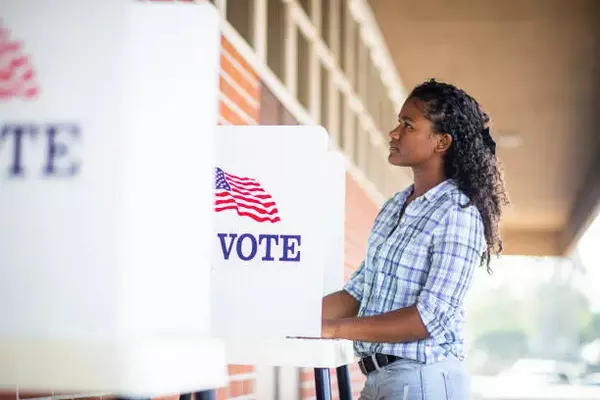Election Day in the United States holds a significant place in the democratic process, allowing citizens to participate in selecting their leaders. The timing and date of this important event often lead to questions about its historical origins and current implications. This article explores the background, significance, and ongoing discussions surrounding the practice of holding Election Day on the first Tuesday in November.
The Origins of Election Day
Historical Context
To understand the significance of Election Day and its scheduling, it is crucial to delve into the historical context of elections in the United States. The framers of the Constitution recognized the importance of creating a system that allowed citizens to voice their preferences in government. However, the practicalities of voting, including issues like travel, accessibility, and agricultural schedules, influenced the decision-making process regarding when elections should be held.
Early Voting Practices
In the early days of American democracy, voting practices varied widely. Some states held elections on different days, making it challenging to maintain a cohesive national electoral process. The need for standardization became increasingly apparent as the population grew and communication improved.
Adoption of November
In the mid-19th century, as the nation expanded westward, Congress sought to standardize the election process. In 1845, Congress passed a law establishing that presidential elections would be held on the first Tuesday after the first Monday in November. This date was chosen for several reasons:
- Agricultural Calendar: November is after the harvest season in most of the United States, allowing farmers to participate in the elections without disrupting their agricultural responsibilities.
- Travel Considerations: In an era when transportation was slow and often difficult, holding elections in November allowed people time to travel to polling places. Many voters had to journey significant distances, sometimes requiring days to reach their destination.
- Religious Practices: Sunday was traditionally a day of worship and rest, and Monday was often needed for travel. Therefore, a Tuesday election ensured that people could travel on Monday and vote on Tuesday.
The Current Framework of Election Day
National Election Day
Today, Election Day is firmly established as the first Tuesday after the first Monday in November. This framework applies not only to presidential elections but also to many other local and state elections. The consistency of this date helps to streamline the electoral process, making it easier for citizens to participate.
Importance of Voter Participation
Election Day serves as a pivotal moment for civic engagement. It is an opportunity for citizens to exercise their right to vote and influence the direction of their government. High voter turnout is crucial for a healthy democracy, and various initiatives aim to encourage participation on Election Day.
Variations Across States
While Election Day is standardized at the national level, some states have implemented their own variations regarding voting procedures. For instance, many states have adopted early voting, allowing citizens to cast their ballots in person before Election Day. Additionally, mail-in voting has become more prevalent, particularly in response to the COVID-19 pandemic. These measures aim to increase accessibility and voter turnout.
Challenges and Critiques
Accessibility Issues
Despite the established framework, challenges remain regarding voter accessibility on Election Day. Certain demographics, such as low-income individuals, people with disabilities, and those living in rural areas, may face difficulties in reaching polling places. Long lines, limited polling hours, and inadequate transportation options can further complicate the voting experience.
Voter ID Laws
Another significant challenge is the implementation of voter ID laws in several states. While proponents argue that these laws prevent fraud, critics contend that they disproportionately affect marginalized communities. The requirement to present identification can deter some individuals from voting, undermining the democratic process.
The Role of Technology
In recent years, the role of technology in elections has grown exponentially. Electronic voting machines and online voter registration systems have the potential to improve accessibility and streamline the voting process. However, concerns about cybersecurity and the integrity of electronic voting systems have led to ongoing debates about the best approach to modernizing the electoral process.
The Future of Election Day
Potential Changes to the Election Schedule
As societal needs evolve, discussions about changing the timing of Election Day have emerged. Advocates for moving Election Day to a weekend argue that this would increase voter participation by making it more convenient for working individuals. Additionally, some propose implementing a national holiday for Election Day, further emphasizing its importance in the democratic process.
The Impact of COVID-19
The COVID-19 pandemic has had a profound impact on the electoral landscape. As public health concerns arose, states had to adapt their voting processes to ensure the safety of citizens. The increase in mail-in voting and early voting options may have lasting effects on how elections are conducted in the future.
Encouraging Civic Engagement
Efforts to promote civic engagement will continue to play a vital role in shaping the future of Election Day. Organizations, community groups, and educational institutions are working to raise awareness about the importance of voting and encourage citizens to participate actively in the electoral process.
See also: Why Was Veterans Day Created?
Conclusion
In conclusion, Election Day remains a cornerstone of American democracy, held on the first Tuesday after the first Monday in November. This date reflects historical considerations, including the agricultural calendar, travel logistics, and religious practices. As we move forward, it is essential to address the challenges that hinder voter participation and explore potential changes to enhance accessibility and engagement.
The evolution of Election Day will depend on a collective commitment to ensuring that all citizens can exercise their right to vote. By understanding the historical significance and current implications of Election Day, we can foster a more inclusive and participatory democracy that empowers every voice in our society.
Related topics:

